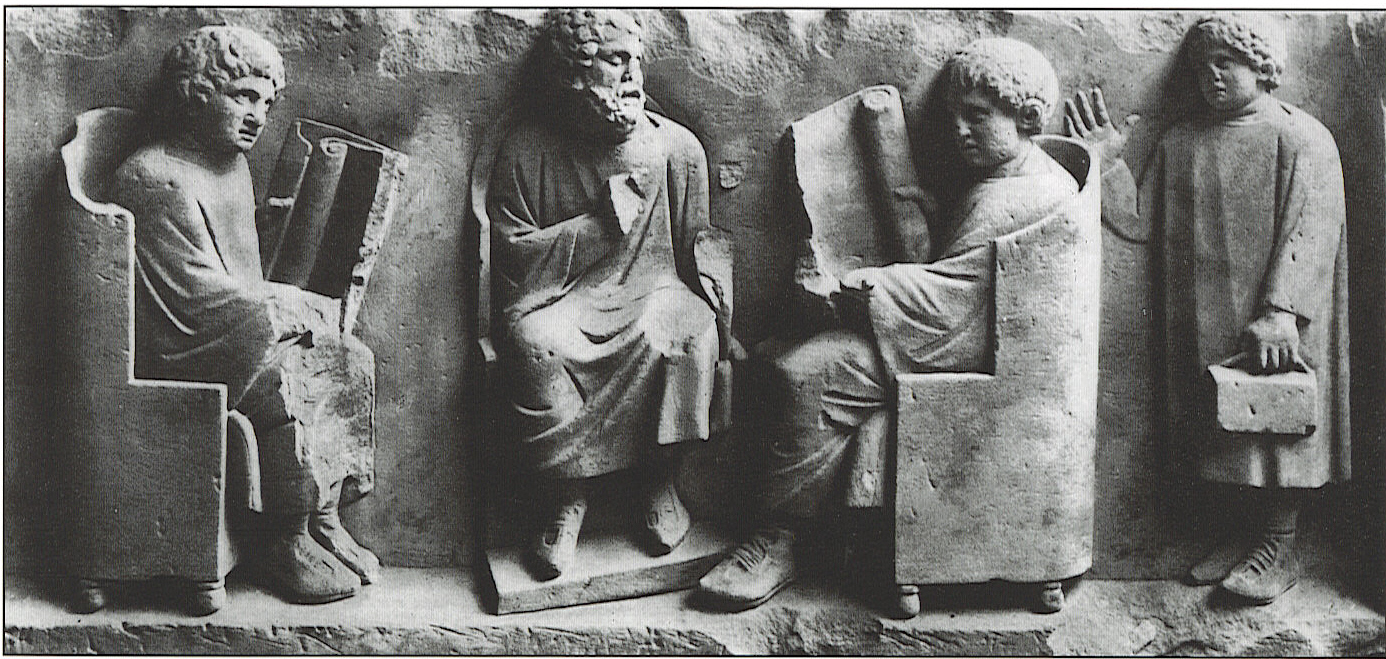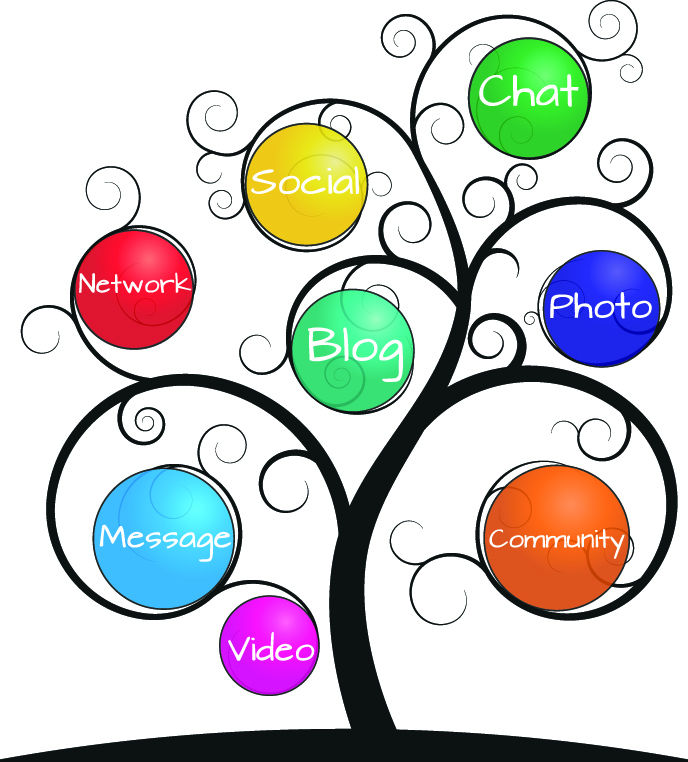
In this guest post Eleanor Dickey FBA, Professor of Classics at the University of Reading, reflects on the lessons that the education systems of Ancient Greece might hold for modern democracies. These ideas will inform Experiencing Ancient Education: a day of activities based around a recreated ancient classroom at the University of Reading on 19 November.
Experiencing Ancient Education
At Reading we are gearing up for our Experiencing Ancient Education event on 19th November, when we shall re-create an ancient schoolroom not only in its visible, physical form but also in its practices and ethos. Naturally, as we get together our wax tablets, papyrus rolls, tunics, and reed pens we’ve been thinking a lot about what the inhabitants of the ancient world considered important in education and why they considered education important.
The Spartan king Agesilaus once said that what matters in education is that children must learn the skills they will use when they grow up, and that saying has been constantly quoted by education experts from his day to ours. Its fame, however, comes not only from the fact that it seems intuitively true but also from the fact that no known education system seems to follow it.
If Agesilaus’ saying looks so obviously right, why does no-one put it into practice? Part of the reason has to be that providers of education, the people who pay for it or mandate it and therefore determine what their money will pay for or what will count towards their requirements, are not completely disinterested themselves. And why should they be? The state, the church, even parents are not obliged to think purely of the best interests of the people being educated; one of the main reasons they want people to have education is that they themselves stand to benefit from the results. The state benefits from having a well-educated workforce, the church benefits from the opportunity to foster religion in children, and parents benefit from their children becoming respectable and productive members of society, able to help elderly parents rather than having to be supported by them.
Is there a problem?
Is there anything wrong with this situation? Not really; it’s perfectly reasonable for a state to do what it can to ensure that children grow up able to be productive citizens able to make a contribution to the state as a whole. But should we be pretending that the main beneficiary of education is the person educated when it is really the people providing/mandating the education.
In Agesilaus’ kingdom, ancient Sparta, education consisted primarily of military training: a Spartan citizen needed to be courageous, strong, skilled in warfare, and highly obedient, so that was what Spartan education produced. A Spartan boy who did not want to be a warrior and would have preferred to become a potter, carpenter, or playwright was out of luck, because that was not what the state needed. But Sparta did not want illiterate, unmusical, boorish warriors, and therefore the state training included instruction in reading, writing, literature, and music in addition to the more obviously military pursuits.
Athenian education
In ancient Athens the situation was very different. Athens too had state-provided military training, but only for two years and only in a boy’s late teens; this was a period of military service, not a complete education as in Sparta. Any training that Athenian children received in reading, writing, literature, music, etc. was up to their parents to arrange and pay for.
Athens was a democratic city. Decisions like whether to send troops to Sicily or whether to execute rebellious subjects were made by the votes of all the adult male citizens meeting in an assembly. This system did not work well: the assembly made a series of very poor decisions, and as a direct result the Athenians were conquered by the Spartans. They blamed their fall on education: not on the military training that everyone at Athens received, but on the training in rhetoric and techniques of persuasion that some people acquired in order to be able to get the assembly to do what they wanted it to do.
Were the Athenians right to blame rhetorical education for their bad decisions? Perhaps if no-one had had any training in rhetorical techniques, the assembly might have made better decisions — but we cannot be sure. Perhaps they would have made bad decisions even without well-educated demagogues, because realistically it is difficult to make good decisions when you lack the necessary background information. Arguably the problem is not that a few people were well educated, but that most people were not well educated. If the members of the assembly had all studied rhetorical techniques themselves they would not have been so easily influenced by them, and if they had studied some other subjects as well they could have made better practical decisions. The Athenians seem to have tacitly admitted that this was the solution somewhat later, when they reformed their state military service so that it included academic subjects as well as military training.
The humanities and modern democracy
Many Western societies now operate on the assumption that democracy requires education. If ordinary people have the power to make major decisions — and even the decision of which politicians to vote for can be pretty major — it is important that they have enough knowledge and enough skill in dealing with arguments to make good decisions. In the US a common slogan in education-funding conflicts is ‘If you think education is expensive, try ignorance!’
Sometimes when hearing rhetoric about education in the UK I wonder if this point has been forgotten here. Some people appear to think that citizens who do not themselves do A-levels or attend university do not benefit from the existence of A-levels and universities, but that is absurd. Not only does everyone who ever uses a doctor, a dentist, a lawyer, or any other educated professional benefit from the widespread education available in the UK, but we all benefit from the fact that despite being a democracy the UK does not have the tendency to destroy itself that Athens did. Living in an educated democratic society is far safer, easier, and more enjoyable than being governed by people who have not got the necessary background to make good decisions.
The Humanities play a big part in all this. Learning what has happened in the past as a result of bad (and good) decisions, learning about the foreign countries that we have to interact with, and above all learning how to break down an argument and see whether it is right are key to education in the Humanities. And a democratic society needs exactly these skills in its voters. I only hope we can manage to remember this, and continue to avoid acting like the Athenians!
Experiencing Ancient Education is just one of many activities during Being Human which connects cutting edge research in the humanities to issues shaping our everyday lives. For updates on the latest Being Human news follow us on Twitter @BeingHumanFest, on Facebook, and on Pinterest. Don’t forget to sign up to our e-newsletter too!
